HARROWING images shows dozens of Covid-infected bodies washed up on the banks of the Ganges river amid an unprecedented crisis in India.
The corpses were filmed piling up at the banks of the waterway at Chausa town in the northern state of Bihar.

Read our coronavirus live blog for the latest updates
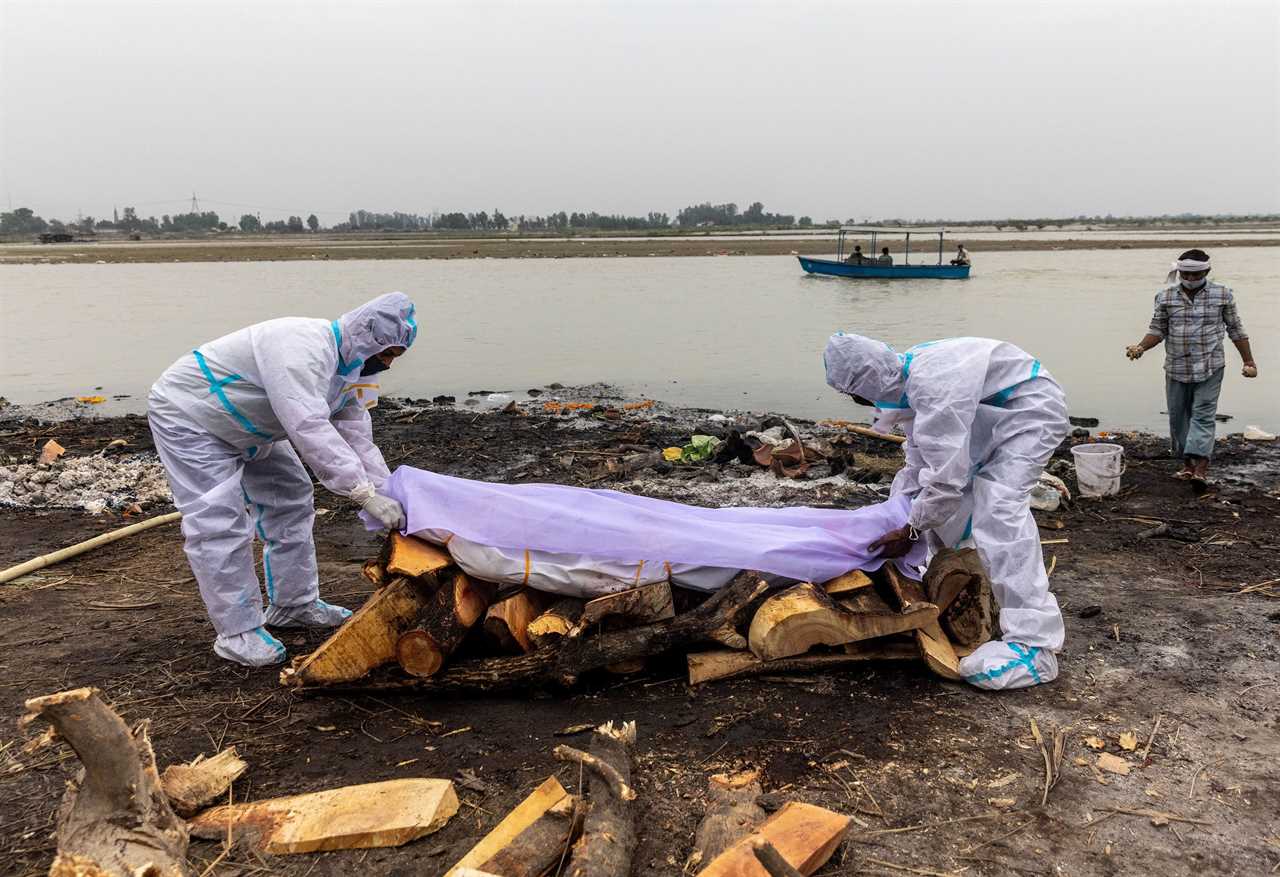
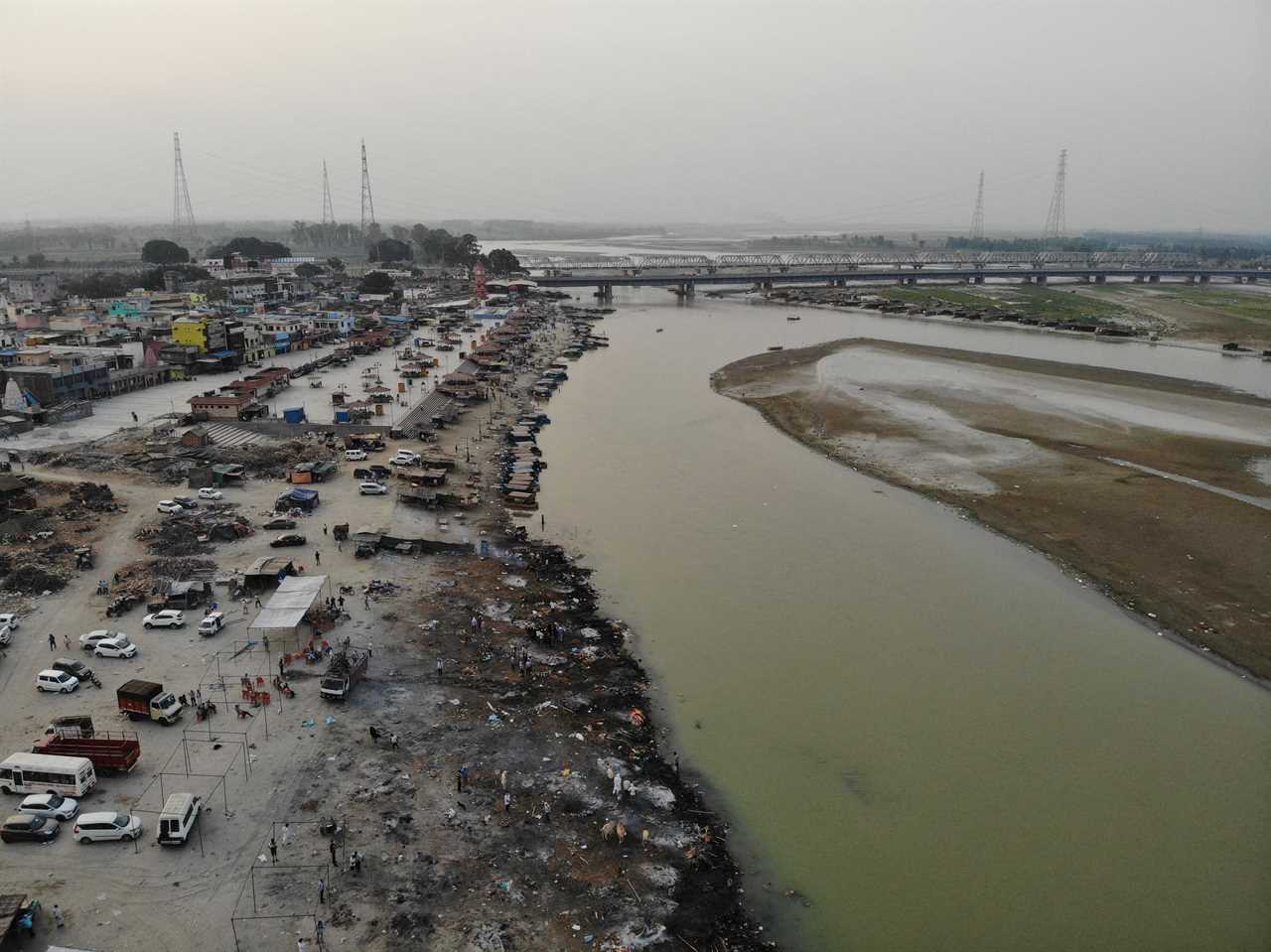
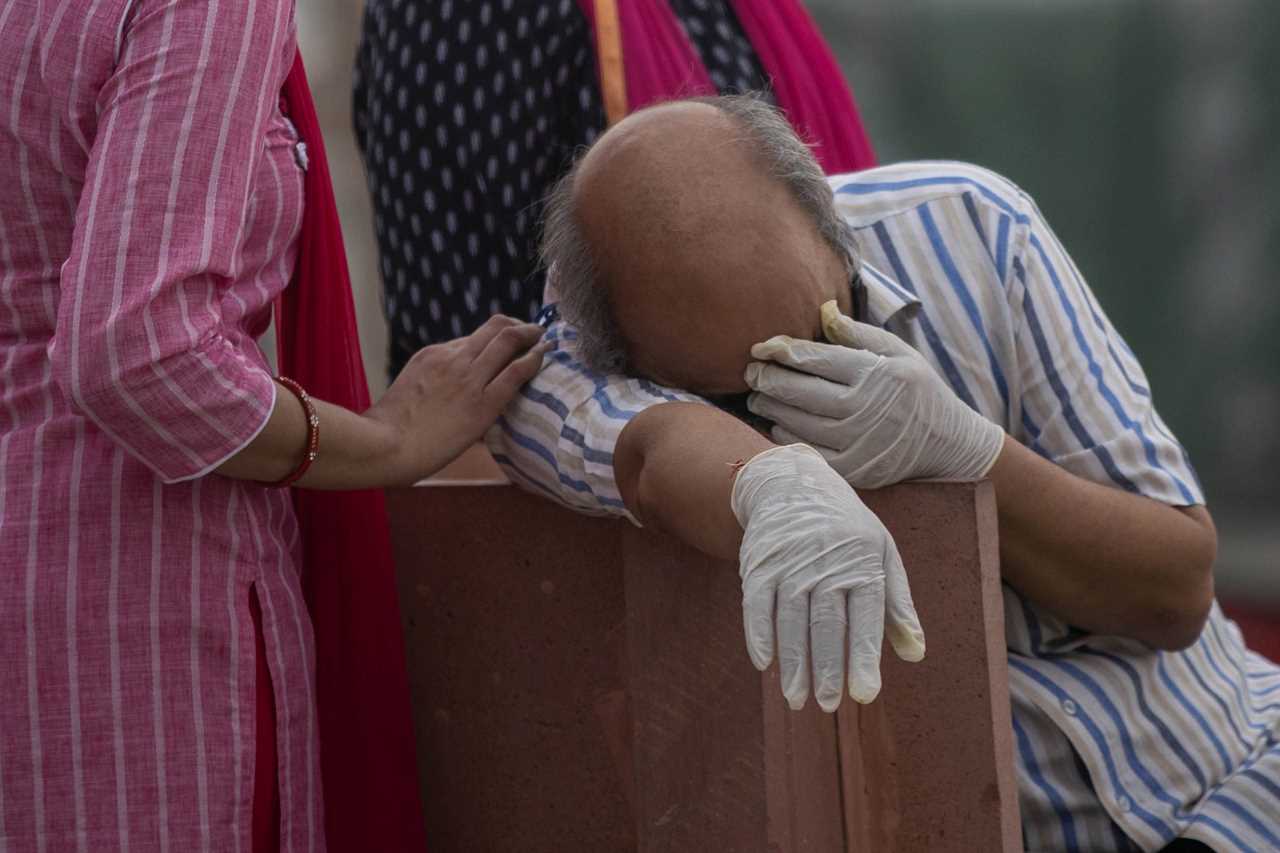
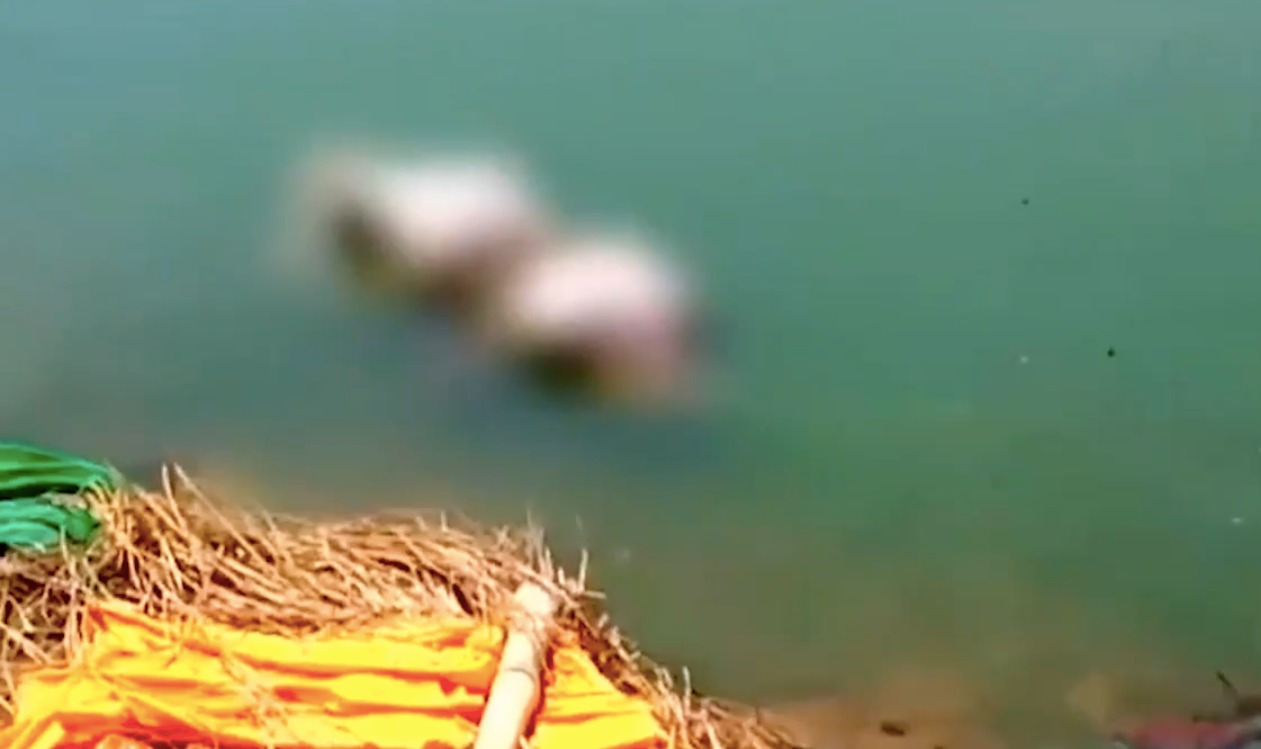
Officials say the bodies floated down from Uttar and belong to Covid patients whose families may have been unable to cremate or bury them.
Chausa district official Ashok Kumar said: “Some 40-45 bodies were seen floating.”
Kumar said the bodies had been thrown into the river while some reports say there could be up to 100 corpses in the water.
There are fears the bodies could lead to a further explosion of infections in the area as stray dogs could end up feasting on the rotting flesh.
Another official KK Upadhyay said: “They are bloated and have been in the water for at least five to seven days.
“We are disposing of the bodies. We need to investigate where they are from, which town in UP – Bahraich or Varanasi or Allahabad.
“The bodies are not from here as we don’t have a tradition of disposing of bodies in the river.”
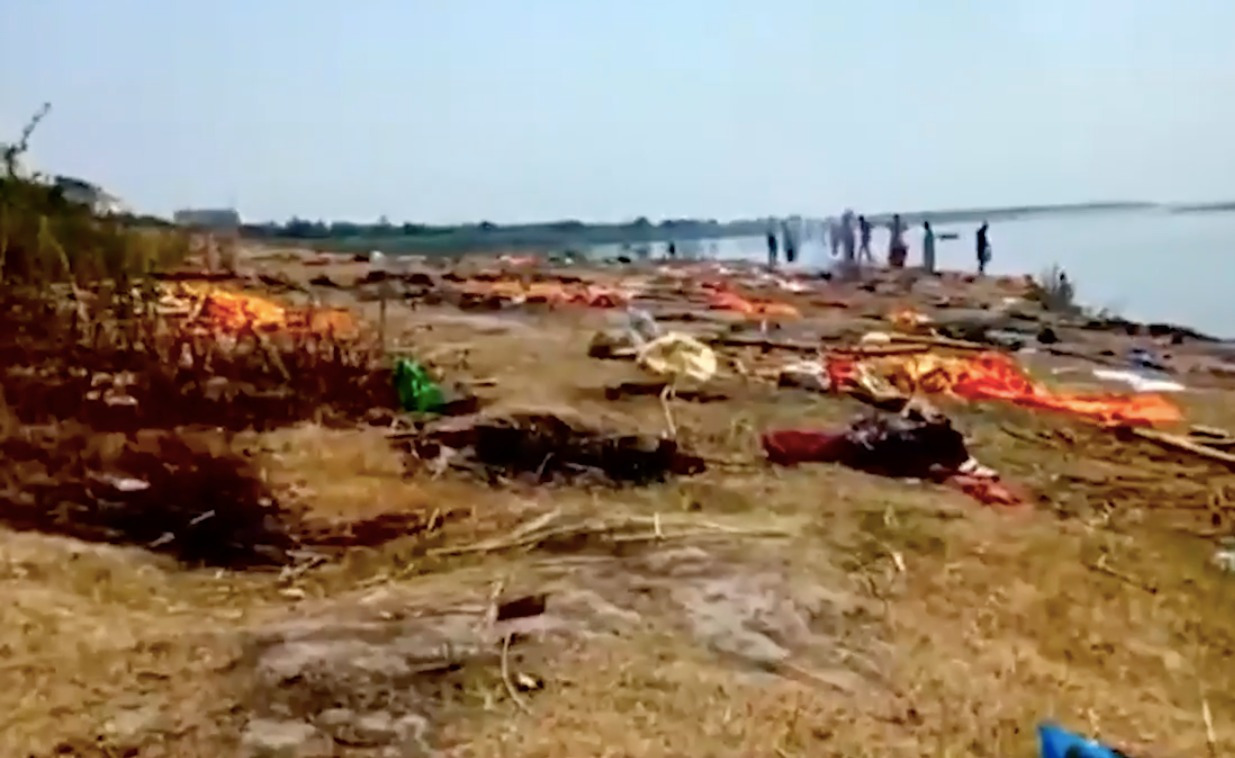
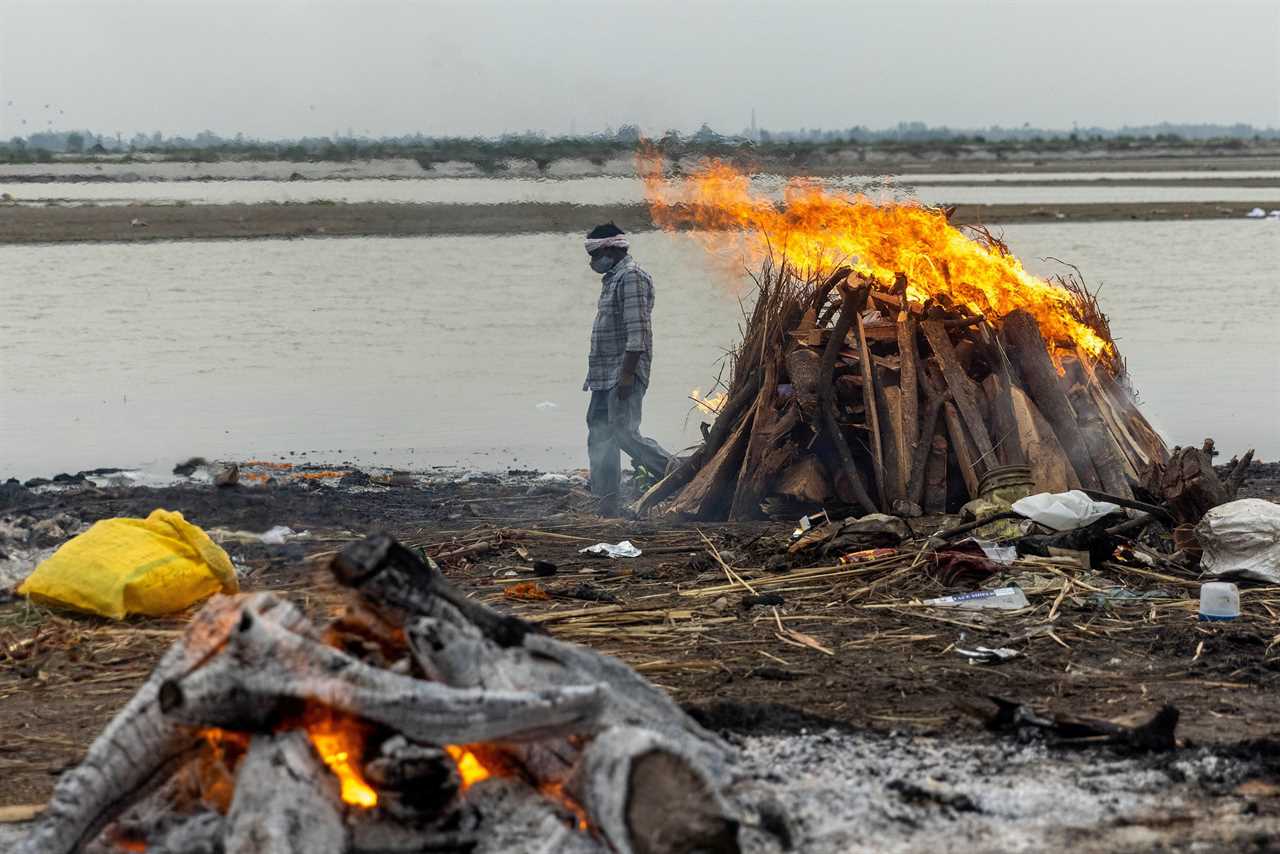
India, suffering from one of the worst outbreaks in the world, reported nearly 370,000 new infections and more than 3,700 new deaths on Monday.
Meanwhile, there are concerns that religious festivals in India could turn into “super-spreader events”.
Last month, millions of Hindus gathered in the Himalayan town of Haridwar to attend the Kumbh Mela festival despite the deadly second wave.
It has since been reported that many of those who did attend have tested positive since travelling to other parts of the vast country.
In Haridwar, officials said more than 2,000 people who attended had tested positive for the virus, including dozens of religious leaders.
Epidemiologist Dr Lalit Kant said: “It’s disastrous. And these numbers are only the tip of the iceberg.
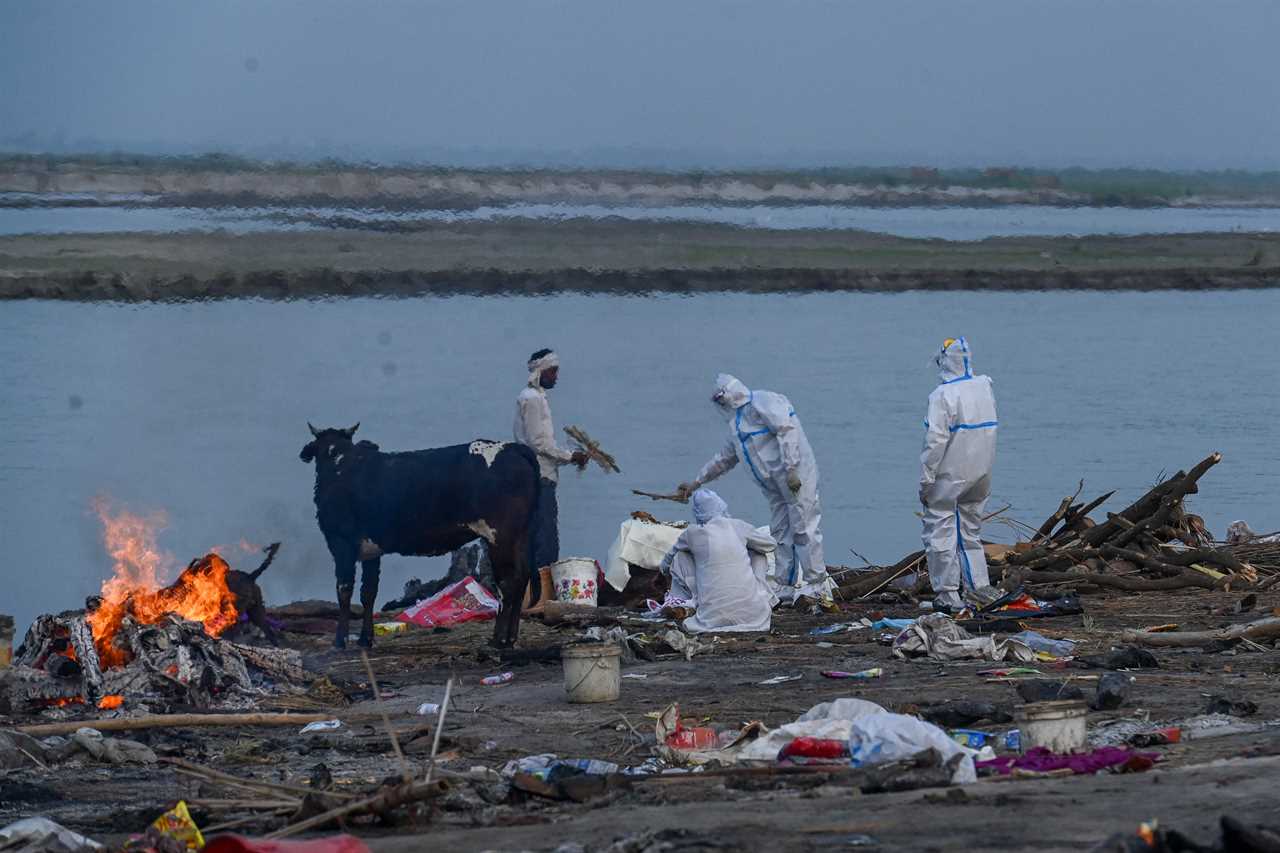
“The groups of pilgrims travelling in crowded trains and buses would have the multiplier effect on the number of infections.
“I can say without hesitation that the Kumbh Mela is one of the main reasons behind the rise in cases in India.”
A Covid variant spreading in the country appears to be more contagious and has been classified as being “of concern”, the World Health Organisation said.
The UN health agency said the B.1.617 mutation first found in India last October seemed to be transmitting more easily.
“There is some available information to suggest increased transmissibility of the B.1.617,” Maria Van Kerkhove, the WHO’s lead on Covid-19, told reporters.
“As such, we are classifying this as a variant of concern at the global level,” she said.
The devastating wave has overwhelmed the country’s healthcare system and experts have said official figures for cases and fatalities are much lower than the actual numbers.
BionTech on Monday sought to ally fears around the mutation in India, saying that “to date, there is no evidence” that the jab needs to be adapted to fight the emerging variants.
The outbreak has spread to some of India’s neighbours, including Nepal.






